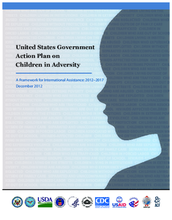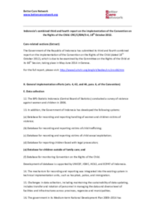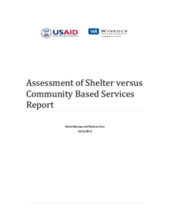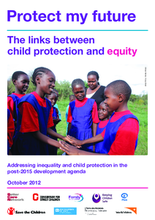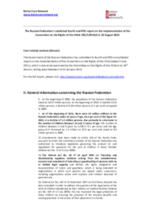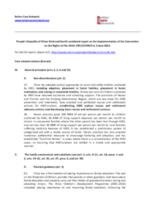Displaying 391 - 400 of 469
The Action Plan on Children in Adversity is the first government wide strategic guidance for U.S. Government international assistance for children. The goal of the Action Plan is to achieve a world in which all children grow up within protective family care and free from deprivation, exploitation, and danger. It has three principal objectives, with Objective 2 specifically focusing on the importance of promoting family care and prevention of family-child separation.
In its Annual report (2011-2012), the Indian Ministry of Women and Child Development reports on progress in the implementation of the Integrated Child Protection Scheme (ICPS), a new policy and programmatic strategy that specifically articulates the need to move away in approach and services from over-reliance on institutional care and towards responses that support family based care.
The purpose of this review was to identify evidence-based early response strategies and interventions for improving the outcomes of children outside of family care, including children of and on the street, institutionalized children, trafficked children, and children affected by conflict and disaster, and who are exploited for their labor. A conclusion was drawn that there is a strong need for strengthening the evidence base regarding the effectiveness or early assessments and responses to children living outside family care and for using evidence to guide operational policy and practice.
Care related section of the Government of the Republic of Indonesia's third and fourth combined report on the implementation of the Convention on the Rights of the Child (dated 18th October 2012).
In this report, Retrak examines the situation of girls living on the streets in Kampala, Uganda and Addis Ababa, Ethiopia, and provides key recommendations on the development programs required to address their needs. The report urges for scaling up services, building new facilities for street girls, and building staff capacity to handle issues related to this population.
This assessment examines shelter and community-based care models for victims of trafficking in Cambodia, and explores the best practices of service providers.
The lack of care and protection facing children is a global crisis with billions of children experiencing abuse, neglect or exploitation, and many millions growing up outside of families, on the streets or in harmful institutional care. This lack of adequate care and protection is commonly the result of inequalities. Children without adequate care and protection are stigmatized and have inequitable access to basic services which, severely diminishes life chances and creates a spiral of disadvantage. In order to break this spiral, the authors of this report recommend a three-pronged strategy.
Care related sections of the Government of the Russian Federation's fourth and fifth combined report on the implementation of the Convention on the Rights of the Child (dated 3rd June 2011).
In this TED Talk, Daniela Papi - founder of PEPY, a Cambodian youth leadership organization, and PEPY Tours, a development education travel company - speaks of the ways that international volunteering can be harmful to children and communities and urges volunteers and organizations to rethink “voluntourism.”
The People’s Republic of China issued its third and fourth combined report on the implementation of the Convention on the Rights of the Child in June 2012. This extract of the report focuses on sections relevant to children's care and in particular those addressing Family Environment and Alternative Care

